Filter 936 resources:
- community (216)
- content strategy (195)
- curation (137)
- social media (132)
- media (106)
- news (96)
- content marketing (84)
- content (76)
- strategy (66)
- communications (63)
- metrics (56)
- facebook (55)
- comments (50)
- promotion (43)
- marketing (43)
- ai (43)
- eu (43)
- journalism (40)
- engagement (39)
- storytelling (38)
- innovation (36)
- ocm (36)
- audience research (36)
- multilingualism (32)
- publicsphere (32)
- bloggingportal (29)
- design (29)
- psychology (26)
- authenticity (26)
- disinformation (24)
- propaganda (24)
- blogging (23)
- longform (23)
- myhub (22)
- tool (22)
- productivity (22)
- algorithm (22)
- science (20)
- web (20)
- participation (20)
- online architecture (20)
- medium (19)
- ux (18)
- trust (18)
- management (18)
- twitter (18)
- video (18)
- internal communications (17)
- persuasion (17)
- enewsletter (17)
- troll (17)
- knowledge management (16)
- influence (16)
- data (15)
- filter bubble (15)
- newsletter (15)
- atprotocol (15)
- advertising (14)
- semantic (14)
- brand (14)
- blog (14)
- organisation (14)
- information architecture (13)
- web design (13)
- messaging (13)
- k4p (13)
- bluesky (13)
- podcast (12)
- linkedin (12)
- ai4communities (12)
- audiovisual (12)
- mobile (11)
- politics (11)
- bloggingportal2 (11)
- conversation (11)
- europcom (11)
- fediverse (11)
- personal (10)
- science journalism (10)
- creativity (10)
- democracy (10)
- digital transformation (10)
- seo (10)
- evidence-based policy (9)
- llm (9)
- conspiracy (9)
- newsroom (9)
- web20 (9)
- information (9)
- persona (9)
- moderation (9)
- bot (8)
- analytics (8)
- social marketing (8)
- design thinking (8)
- gtd (8)
- native advertising (8)
- nytimes (8)
- event (8)
- ec (8)
- optimisation (8)
- clickbait (7)
- theme (7)
- cards (7)
- crowdsourcing (7)
- identity (7)
- collective intelligence (7)
- factchecking (7)
- 2ndbrain (7)
- zettelkasten (7)
- business model (7)
- science communication (7)
- editorial (7)
- groupthink (6)
- interactive (6)
- machine translation (6)
- stream (6)
- explainer (6)
- platform (6)
- us (6)
- polarization (6)
- cognitive (6)
- mastodon (6)
- realtime (6)
- outreach (6)
- startup (6)
- data journalism (5)
- instagram (5)
- app (5)
- intranet (5)
- visual (5)
- yanss (5)
- employee engagement (5)
- tribe (5)
- project management (5)
- future (5)
- drupal (5)
- gamification (5)
- euractiv (5)
- agile (5)
- brussels bubble (5)
- covid19 (5)
- viral (5)
- decentralised (5)
- culture (5)
- google (5)
- headline (5)
- buzzfeed (4)
- fbpaper (4)
- leadership (4)
- coral (4)
- guide (4)
- trump (4)
- us2020 (4)
- top3pods (4)
- collaboration (4)
- policy (4)
- cms (4)
- moments (4)
- chatgpt (4)
- privacy (4)
- game (4)
- hr (4)
- machine learning (4)
- training (4)
- open source (4)
- andy matuschak (4)
- sublime (4)
- eurosceptics (4)
- backfire effect (4)
- ewrc2017 (4)
- chat (4)
- pr (4)
- vandenbrande (4)
- visualisation (4)
- google analytics (4)
- meaning (3)
- confirmation bias (3)
- responsive (3)
- blogpocalypse (3)
- regulation (3)
- google+ (3)
- wiki (3)
- mooc (3)
- paper (3)
- qanon (3)
- sceptic (3)
- semanticweb (3)
- echo chamber (3)
- rebelmouse (3)
- disruption (3)
- wikipedia (3)
- email (3)
- presentation (3)
- themes (3)
- ui (3)
- transparency (3)
- letters2eu (3)
- infographic (3)
- bxlsbbl (3)
- euroblog (3)
- bbc (3)
- uk (3)
- jobtodo (3)
- europa (3)
- mvp (3)
- atomisation (3)
- atproto adoption (3)
- slack (3)
- crm (3)
- mybot (3)
- html5 (3)
- reddit (3)
- buffer (3)
- snapchat (3)
- politicoeu (3)
- search (3)
- education (3)
- faq (3)
- lobby (3)
- memex (3)
- faceted search (3)
- survey (3)
- roi (3)
- automation (2)
- ideation (2)
- blogger (2)
- livestream (2)
- pilot (2)
- russia (2)
- ltinnovate2016 (2)
- multimedia (2)
- credibility (2)
- transmedia (2)
- bookmark (2)
- ea (2)
- sponsored content (2)
- annotate (2)
- posse (2)
- co-creation (2)
- conference (2)
- curatorbot (2)
- tv (2)
- usability (2)
- loyalty (2)
- addiction (2)
- magazine (2)
- substack (2)
- machine text (2)
- vox (2)
- cultural exchange (2)
- english (2)
- copyright (2)
- eparltv (2)
- dissonance (2)
- notification (2)
- eurocrap (2)
- wisdom (2)
- brexit (2)
- framework (2)
- circa (2)
- media literacy (2)
- basic (2)
- product/market fit (2)
- gawker (2)
- sensemaking (2)
- integrated (2)
- free (2)
- attentionweb (2)
- consultancy (2)
- obsidian (2)
- cambridge analytica (2)
- lean canvas (2)
- crowdculture (2)
- signal2noise (2)
- ft (2)
- euractiv-com (2)
- governance (2)
- quora (2)
- integrate (2)
- khub (2)
- syndicated-translation (2)
- infopocalypse (2)
- usp (2)
- signaltonoise (2)
- useful (2)
- knowledge visualisation (2)
- knowledge graph (2)
- screencast (2)
- vine (2)
- dao (2)
- slideshare (2)
- guardian (2)
- motivated (2)
- open web (2)
- expert (2)
- europe (2)
- evolution (2)
- canonical debate lab (2)
- gender (2)
- massive.wiki (2)
- twitter migration (2)
- statistics (2)
- pitch (2)
- usa (2)
- kpi (2)
- ai prompt (2)
- change (2)
- agent (2)
- narratives (2)
- instant articles (2)
- personalisation (2)
- eurosceptic (2)
- threads (2)
- nuzzle (2)
- listicle (2)
- sari azout (2)
- river4 (2)
- image (2)
- mobocracy (2)
- seenthis (2)
- hbr (2)
- planning (2)
- klout (2)
- debunk (2)
- whitewind (2)
- blacksky (2)
- interface (2)
- example (2)
- big data (2)
- eurosky (2)
- expertise (2)
- technology (2)
- animation (2)
- goals (2)
- aggrefilter (2)
- sovereignty (2)
- sales (1)
- meta (1)
- llama2 (1)
- centaur (1)
- ai-agent-gpt (1)
- reference frame (1)
- quit (1)
- douglas rushkoff (1)
- experiment (1)
- sensecraft (1)
- jeff jarvis (1)
- cory doctorow (1)
- joan westenberg (1)
- gpt-4o (1)
- synthesise (1)
- anuj ahooja (1)
- pluriverse (1)
- vsop (1)
- pubhub (1)
- robert putnam (1)
- idpi (1)
- model collapse (1)
- talia stroud (1)
- eli pariser (1)
- bluesky custom feeds (1)
- unfinished (1)
- bryan newbold (1)
- sill (1)
- open social (1)
- atprotocol lexicon (1)
- purity spiral (1)
- mike masnick (1)
- free our feeds (1)
- robin berjon (1)
- cocomo (1)
- altmetric (1)
- cosmik (1)
- at4democracy (1)
- laurens hof (1)
- renee diresta (1)
- middleware (1)
- semble (1)
- wef (1)
- ai reasoning (1)
- claude code (1)
- simon willison (1)
- damien van achter (1)
- vancouver2026 (1)
- permissioned data (1)
- gdpr (1)
- nick gerakines (1)
- futurism (1)
- blockchain (1)
- humour (1)
- map (1)
- virtual reality (1)
- powerpoint (1)
- humility (1)
- society (1)
- nlp (1)
- cmv (1)
- reality (1)
- minimalist (1)
- populism (1)
- conversational (1)
- business (1)
- garden (1)
- compass news (1)
- stack overflow (1)
- bias (1)
- china (1)
- infowar (1)
- augmented reality (1)
- computational propaganda (1)
- memory (1)
- polbot (1)
- sentiment analysis (1)
- risk (1)
- wikitribune (1)
- ethics (1)
- government (1)
- quiz (1)
- vote (1)
- gds (1)
- ubi (1)
- purpose (1)
- intro (1)
- ipr (1)
- software (1)
- spambot (1)
- misinform (1)
- writing (1)
- crowdfunding (1)
- egovernment (1)
- pay4content (1)
- hate (1)
- outrage (1)
- web development (1)
- it (1)
- dunning-kruger (1)
- online (1)
- partisan (1)
- tourism (1)
- perception (1)
- hoax (1)
- storyline (1)
- data visualisation (1)
- local (1)
- scrollytelling (1)
- climate (1)
- mindfulness (1)
- open data (1)
- dialogue (1)
- facebook live (1)
- commonplace (1)
- assimilation (1)
- biased assimilation (1)
- censorship (1)
- snowfall (1)
- coda (1)
- euro (1)
- entrainment (1)
- paywall (1)
- library (1)
- logo (1)
- periscope (1)
- slideshow (1)
- discourse (1)
- freelancer (1)
- impact (1)
- quartz (1)
- fomo (1)
- amp (1)
- user (1)
- newsfeed (1)
- playbook (1)
- resources (1)
- wapo (1)
- christensen (1)
- toptask (1)
- silos (1)
- liquid democracy (1)
- publishing (1)
- feed (1)
- jelly (1)
- data enrichment (1)
- solutions journalism (1)
- peakbot (1)
- radicalisation (1)
- explanatory (1)
- whatsapp (1)
- documentary (1)
- viber (1)
- upday (1)
- samsung (1)
- line (1)
- centralised (1)
- membership (1)
- smartcities (1)
- bitcoin (1)
- homepage (1)
- assist (1)
- monetisation (1)
- isis (1)
- plagiarism (1)
- work (1)
- mediumform (1)
- terrorism (1)
- essena (1)
- litmus (1)
- keyword (1)
- guru (1)
- polls (1)
- soonfeed (1)
- guidelines (1)
- fuego (1)
- rss (1)
- routine (1)
- slidecast (1)
- zapier (1)
- digg (1)
- #ilooklikeanengineer (1)
- ssi (1)
- economics (1)
- networking (1)
- bioethics (1)
- publication (1)
- b2b4me (1)
- nasa (1)
- context (1)
- api (1)
- ep (1)
- australia (1)
- traffic (1)
- audio (1)
- ecosystem (1)
- storyboard (1)
- energy (1)
- eci (1)
- briefing (1)
- inception (1)
- bandwagon (1)
- photography (1)
- adaptive content (1)
- scraping (1)
- cardsort (1)
- trove (1)
- wearable (1)
- specialist (1)
- ello (1)
- bureaucracy (1)
- surveillance (1)
- fail (1)
- content partnership (1)
- yahoo (1)
- campaign (1)
- buzz (1)
- wordpress (1)
- abtesting (1)
- heart (1)
- portal (1)
- forum (1)
- archive (1)
- wayback (1)
- taxonomy (1)
- content shock (1)
- length (1)
- cpms (1)
- ecas (1)
- register (1)
- adaptive (1)
- liquid (1)
- casestudy (1)
- benchmarking (1)
- chinese (1)
- listen (1)
- upworthy (1)
- ektron (1)
- python (1)
- skills (1)
- expiration (1)
- values (1)
- ombudsman (1)
- citizenship (1)
- publicsector (1)
- white papers (1)
- kickstarter (1)
- workflow (1)
- trello (1)
- convert (1)
- cro (1)
- chipotle (1)
- newsana (1)
- newscred (1)
- muckread (1)
- altruism (1)
- cookies (1)
- belgium (1)
- video_conferencing (1)
- social (1)
- blogactiv (1)
- messenger (1)
- osmo (1)
- meta ventures (1)
- language technology (1)
- learn (1)
- help (1)
- hangout (1)
- ugc (1)
- stanbol (1)
- apache (1)
- rebut (1)
- prezi (1)
- epale (1)
- opencalais (1)
- structure (1)
- programme (1)
- scale (1)
- roaming (1)
- ip (1)
- nhscitizen (1)
- visualization (1)
- (1)
- green (1)
- ebook (1)
- employeeengagement (1)
- eu09vs19 (1)
- evidence (1)
- jtbd (1)
- micro.blog (1)
- indieweb (1)
- bertelsmann (1)
- interoperability (1)
- bookmarklet (1)
- elaboration (1)
- aspire (1)
- post-alpha (1)
- alpha phase (1)
- saas (1)
- hosted (1)
- presseurop (1)
- data4policy (1)
- blackpr (1)
- cofoe (1)
- newsguard (1)
- sapiens (1)
- apocalypse (1)
- deep fake (1)
- syllabus (1)
- wikinews (1)
- research (1)
- lobbying (1)
- bundle (1)
- imposter syndrome (1)
- inclusion (1)
- gpt-x (1)
- deep canvassing (1)
- delegitimise (1)
- activitypub (1)
- flicc (1)
- ginsburg (1)
- suppress (1)
- participatory culture (1)
- adversarial interoperability (1)
- gab (1)
- blocklist (1)
- hxc (1)
- early adopter (1)
- bridge (1)
- bridgit (1)
- clubhouse (1)
- spaced repetition (1)
- mental health (1)
- arg (1)
- cookiepocalypse (1)
- flipboard (1)
- fedwiki (1)
- stacked note (1)
- cozyweb (1)
- cluetrain (1)
- tools (1)
- programmes (1)
- rebuttal (1)
- lisp (1)
- yellow-card (1)
- life-in-belgium (1)
- infosociety (1)
- eparticipation (1)
- learning (1)
- monitoring (1)
- collaborate (1)
- comment (1)
- nft (1)
- notion (1)
- ostrom (1)
- cooperatives (1)
- snapshot (1)
- multisig (1)
- d2d (1)
- reading queue (1)
- note (1)
- procrastination (1)
- 3p framework (1)
- d3 (1)
- subconscious (1)
- fotl (1)
- betaworx (1)
- conference report (1)
- gordon brander (1)
- resilience (1)
- agora (1)
- flancian (1)
- pattern language (1)
- plexus (1)
- intimacy (1)
- ma parent (1)
- hyperknowledge (1)
- harvest (1)
- perplexity.ai (1)
- nat eliason (1)
- digital garden (1)
- data union (1)
- disco (1)
- startupy (1)
- llama (1)
- autogpt (1)
- thought leadership (1)
Relevant Overviews
- Bluesky and the ATmosphere
- Communication Strategy
- Content Strategy
- Knowledge4Policy
- Fediverse
- Online Strategy
- Online Community Management
- Social Media Strategy
- Content Creation & Marketing
- Online Architecture
- Digital Transformation
- Change & Project Management
- Personal Productivity
- Innovation Strategy
- Communications Tactics
- Psychology
- Social Web
- Media
- Politics
- Communications Strategy
- Science&Technology
- Business
- Large language models
Overview: Communications Strategy
Relevant resources
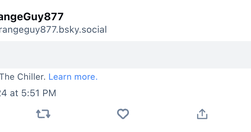
Bluesky's announcement of their open-sourcing of "Ozone, our collaborative moderation tool... individuals and teams can work together to review and label content", coupled with the ability for people and communities to "run your own independent moderation services, seamlessly integrated into the Bluesky app".This enables "an ecosystem of moderatio…
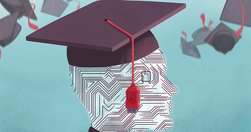
"AI can not only improve short-term productivity of organizations but can also ... increase the organization’s collective intelligence."HBR starts well by pointing out the false dichotomy between thinking "about AI in terms of automation vs. augmentation... Augmentation doesn’t avoid automation, it simply hides it, usually in some lower-level". Ex…
"I rarely work for the same client for more than a year or two - generally enough to help them figure out their strategy, pilot and demonstrate it, and set up the team to mainstream it. But I make an exception for the Joint Research Centre"A few slides, repurposed for LinkedIn, setting out "some of the key innovations underpinning the Knowledge4Po…
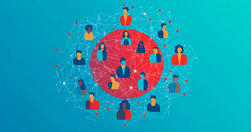
"The most common AI-based functionalities in participation tools are toxicity screening, analysis of inputs and translation. The first two in particular are meant to lighten the workload" of community managers."Toxicity screening ... is used to flag hateful or inappropriate inputs." Text is usually flagged and post-moderated, but images are blocke…
"As AI-generated content blurs the line between human and machine online, “model collapse” might help us find new value in well-managed human communities."
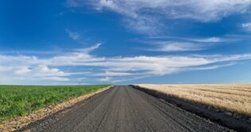
Profile of New_Public, founded by Eli Pariser of Filter Bubble and Upworthy fame, and Deepti Doshi "from from Meta, where she’d spent much of her tenure leading the company’s Community Partnerships... supporting, Facebook group admins... as well as UT Austin professor Talia Stroud, who remains on the board, and their drive to stimulate "citizen-dr…
After so many years of spam, splog, slop, phishing and above all trolling, "Our guard is up. Our filters are activated. Our default mode is suspicion", something that's only going to get worse with AI: are those photos too good to be true? Can that video actually be real? Is that a spambot, or just "someone who isn’t neurotypical or who doesn’t sp…
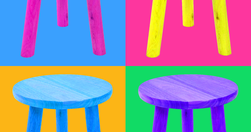
The Initiative for Digital Public Infrastructure's manifesto sets out the three legs upon which an open public sphere must rest.
I share this experience with Patrick, who, when he starts work with a new client, starts by gathering information to create personas: "it could be user interviews, usage data, or whatever — because there has to be some baseline of the users" (he has a "lightweight personas approach ... [and a] personas template").Where the client has personas, the…

Anuj Ahooja asks, on Threads' first birthday, the "existential question... Why does Threads exist? ... an alternative to Elon Musk's X. But ... a platform can't exist to be "an alternative." It should be able to stand alone with its unique purpose and be built to incentivize users to follow that purpose... [unfortunately] the humans who have worke…
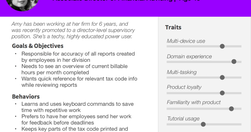
I have used both the jobs2Bdone (JTBD, #jobtodo) and persona methodologies in comms strategy development, so this is a useful distinction: "Jobs-to-be-done focus on user problems and needs, while well-executed personas... add behavioral and attitudinal details". Abandoning personas for JTBD means "missing the key behavioral considerations ... that…
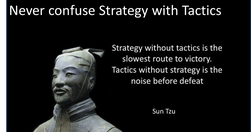
The 4-Step Communications Strategy Framework demystifies communication strategy.
"easily transforming research into visually stunning, comprehensive content. Whether you're crafting in-depth articles, detailed reports, or informative guides... Search any topic, and instantly receive a well-structured, beautifully formatted article. Publish ... and share ... with a single click."The user can customise tone, structure and visua…

"GPT-4o ... talk to users in a much more lifelike way — detecting emotions in their voices, analyzing their facial expressions and changing its own tone and cadence depending on what a user wants... It sounded more humanlike than some humans I know."And it's fast: it's “native multimodal support” means it can "take in audio prompts and analyze th…
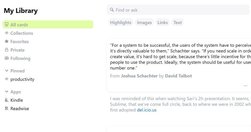
I've been kicking the tyres of Sublime, a new personal and social curation app, and pondering its approach to integrating AI.

"a deep-dive on the concrete ways Sublime makes my life better", by Sublime.app founder Sari Azout.
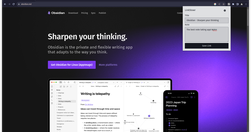
"LinkStowr is a free, open source and privacy-friendly ... store valuable online resources in a structured and meaningful way". Uses a Chrome extension to save link + note to LinkStowr, and an Obsidian plugin to sync the card to a vault. LinkStowr then deletes its unneeded copy.
"The indiscriminate proliferation of AI-generated content will not empower the underrepresented or democratise knowledge creation... [but] dilute and fragment the authenticity and reliability of information ... the discerning judgment of human curators is the only defence against misinformation and mediocrity".Why? Human curators :"bring nuanced u…
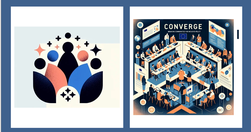
Earlier this week I used an excerpt from a chat with Philip Weiss & Jesús Azogue as a starting point for a conversation with ChatGPT about some of the content in my Hub.
"Transformation Maps... help users to explore and make sense of the complex and interlinked forces ...transforming economies, industries and global issues... insights written by experts along with machine-curated content... allows users to visualise and understand more than 250 topics and the connections and inter-dependencies between them... to s…
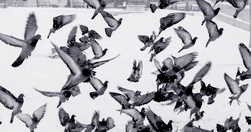
One of my favourite writers/thinkers on all things digital future is "finally, definitely, fully leaving X, and probably all social media..."
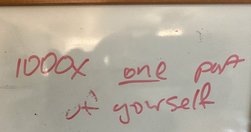
"My advice: Jump headfirst into AI with everything you’ve got."

Is your organization more like a jellyfish or a flatworm?The author's "Jellyfish and Flatworm story has been remarkably effective at helping ... [executives] visualize the impact of AI on their customers, their products, and their employees... this story is about why Knowledge Representation (KR) must be the core of any cost-effective long-term AI…

Summarises a recent Meta paper on Llama 2, "a continuation of the LLaMA... Big picture, this is a big step for the LLM ecosystem when research sharing is at an all-time low and regulatory capture at an all-time high" - so Meta continues its improbable position as good guy in the OS movement (at least when it comes to AI, but also possible in socia…
Staying aware of the opportunities as they arise is a key element to being a commercially successful thought leader.
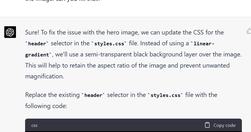
"The project: to market the launch a new educational game... in 30 minutes it: did market research, created a positioning document, wrote an email campaign, created a website, created a logo and “hero shot” graphic, made a social media campaign for multiple platforms, and scripted and created a video".Key prompts, first with Bing, as it's online:"…

"the distributed/federated digital garden approach is the way to go for knowledge commoning... cribbing from ActivityPub's local, global, and 'those-you-follow' timelines... you could have local, 'those-you-follow', and global gardens... [with] some kind of liquid democracy", and interest-based groups, perhaps starting with user-defined lists: " …

Good history of design thinking."IDEO’s way of working: a six-step methodology for innovation called design thinking... Key ... was its replicable aesthetic, represented by the Post-it note:... Not too precious, not too permanent... promises a fast-moving, cooperative, egalitarian process", but is also "disruptive, startup-flavored creativity" whi…
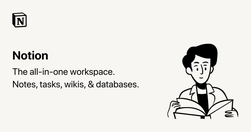
"a modern version of del.icio.us meets Roam... a searchable, interconnected repository of the most insightful content on the Internet" - and a pretty interesting example of convergent evolution vis a vis myhub.ai
Loading more...
Relevant Overviews
- Bluesky and the ATmosphere
- Communication Strategy
- Content Strategy
- Knowledge4Policy
- Fediverse
- Online Strategy
- Online Community Management
- Social Media Strategy
- Content Creation & Marketing
- Online Architecture
- Digital Transformation
- Change & Project Management
- Personal Productivity
- Innovation Strategy
- Communications Tactics
- Psychology
- Social Web
- Media
- Politics
- Communications Strategy
- Science&Technology
- Business
- Large language models